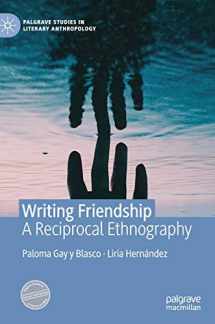
Writing Friendship: A Reciprocal Ethnography (Palgrave Studies in Literary Anthropology)
Book details
Summary
Description
This book tells the remarkable story of the friendship between Liria Hernández, a Roma woman from Madrid, and Paloma Gay y Blasco, a non-Roma anthropologist. In this unique reciprocal experiment, the former informant returns the gaze to write about the anthropologist, her life and her environment. Through finely crafted and deeply moving text, Hernández and Gay y Blasco suggest new ways of doing and writing anthropology.
The dialogue between Hernández and Gay y Blasco provides a courageous account of the entanglements and rewards of anthropological research. Drawing on letters, conversations, and fieldnotes gathered over twenty-five years, each of the authors talks about herself, the other, and the impact of anthropology on their two lives. They examine their intertwined trajectories as Spanish women and reflect on the challenges of devising their own reciprocal genre. Blending ethnography, life story and memoir, they undermine the dichotomy between author and subject around which scholarship still revolves.


We would LOVE it if you could help us and other readers by reviewing the book
Book review



